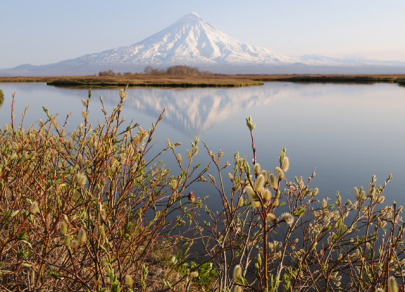FX.co ★ Top largest nature reserves of Russia
Top largest nature reserves of Russia
Great Arctic State Nature Reserve - 4.2 million hectares
The territory of the Great Arctic State Nature Reserve, which was included in the largest complex Taimyr Reserves in 2013, consists of seven large sections that are separated by groups of islands, archipelagos or mainland parts of the Taimyr Peninsula and bays of the Kara Sea. On the Chelyuskin Peninsula, in the continental arctic deserts zone, the snow covers the ground about 300 days a year. Some icebergs here are several hundred year old. To do Arctic fishing or go along the ornithological route, you should get the approval of the administration and choose one of the tourist routes.
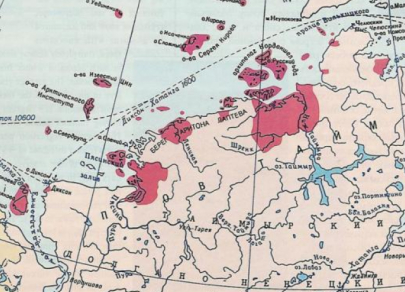
Great Arctic State Nature Reserve - 4.2 million hectares
Here lies the border between Western and Eastern Siberia, therefore, various research and environmental education activities are held on the territory of the nature protection complex dedicated to the study of various natural ecosystems. In the vast areas of the subarctic belt, 30 families of higher plants, 50 bird species, 20 mammal species, 30 fish species and even several insect species can be found. Nothing disturbs the severe calmness of the local flora and fauna, even the Polar Bumblebee, which has flown by inadvertently. Abundance of shrubs and lichens for just a few weeks in a year become decorated by bright poppies and arctic roses; large herds of wild reindeer sometimes scare away nesting birds; brown bears, lazily lowering their paws into the water, catch fish from the river.

Komandorsky Nature Reserve - 3.6 million hectares
Discovered by Vitus Bering in 1741, the Commander Islands, which are a chain of enormous underwater volcanic ridge peaks, have long been uninhabited. The nature reserve is located on four large islands (Bering Island, Medny Island, Toporkov Island and Ariy Kamen Island) and the adjacent water area of the Bering Sea and the Pacific Ocean. It includes not only strictly protected reserve zones, but also buffer zones where fishing and economic activities are partially permitted.
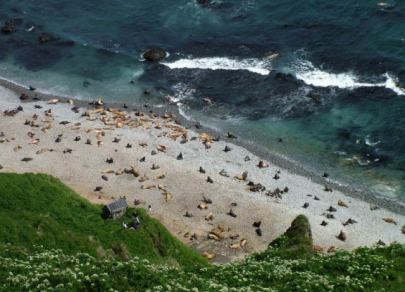
Komandorsky Nature Reserve - 3.6 million hectares
The location in the unfrozen water area affects local flora and fauna; the most part of the species diversity of the Kamchatka Territory can be found here. With a fairly cool summer and relatively warm winter, 25 species of mammals, 25 species of fish and 213 species of birds feel comfortable in the preserve.
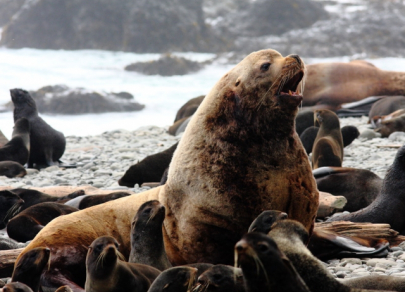
Wrangel Island - 2.2 million hectares
Wrangel Island, the "land of polar bears", is the northernmost nature conservation complex in Russia. This territory is a place of living for many rare species of plants and animals, including endemics. In 2012, the preserved coastal area of Wrangel Island was increased, but in some parts of the island the indigenous population is still allowed to conduct commercial hunting.
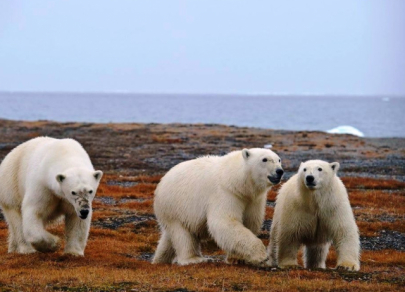
Wrangel Island - 2.2 million hectares
The main part of the reserve is formed by a mountain landscape with elements of the Arctic tundra, providing ample opportunities for archaeological research. Despite severe climatic conditions, hampering the work of scientists and the development of reserve tourist potential, thanks to its natural complex uniqueness the preserve was included in the list of UNESCO World Heritage Sites in 2004.
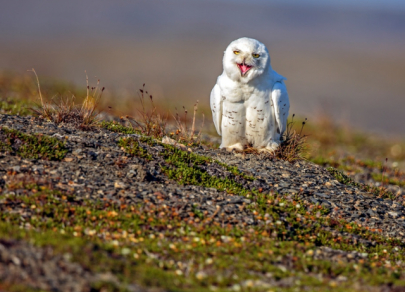
Putorana Nature Reserve - 1.9 million hectares
The center of Putorana Reserve is a mountain system, which is the habitat of the wild reindeer largest population. The clear geographic zonality of the Putorana Plateau combined with a continental climate led to the formation of landscapes that differed significantly from one another.
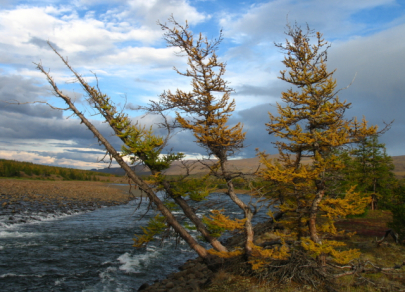
Putorana Nature Reserve - 1.9 million hectares
In addition, the reserve is famous for its numerous lakes and waterfalls, including the 108 m high Talnikovy Waterfall considered to be Russia's highest. Despite fishing and hunting, which provoked a small reduction in endemic animals, the natural world of this region remained virtually untouched. In 2010, this territory entered the UNESCO World Heritage Sites.

Taymyr Nature Reserve - 1.4 million hectares
The Taimyr reserve, along with the Great Arctic and Putorana Nature Reserves, is part of the Federal state budgetary institution Reserves of Taimyr in the Krasnoyarsk Krai. It is a unique natural territory with the most favorable conditions for scientific research. Taimyr is known for its natural, archaeological, and historical sites.
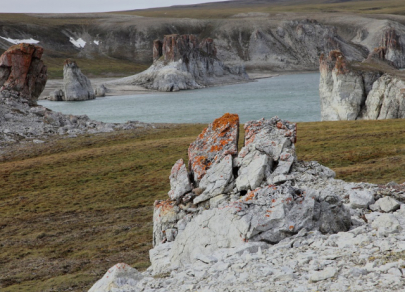
Taymyr Nature Reserve - 1.4 million hectares
The main part of the park is occupied by the typical tundra vegetation. In the humid, sometimes frozen ground, there are almost no flowering plants or mosses, and the hollows of frosty cracks are covered mainly by lichens. Minimal water permeability leads to the bogs formation, the relief change and solifluction. Rather dull tundra landscape is diluted by rivers and lakes that serve as a habitat for life on the island. The most remarkable animals here are acclimatized musk oxen lemmings and reindeer.
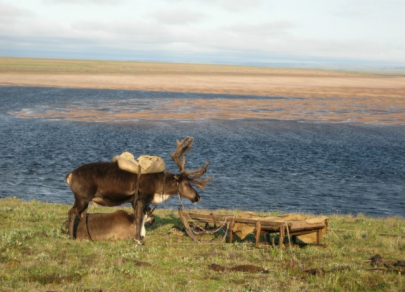
Lena Delta Nature Reserve - 1.4 million hectares
The Lena Delta Nature Reserve was created to preserve the unique natural complexes of the Lena River delta, which flows into the Arctic Ocean. This is the land of fogs and mirages, the most northern forest tracts of Eurasia, as well as giant cemeteries of ancient animals. Because of significant archaeological finds of the Pleistocene epoch, studies in the Lena Delta are currently being carried out not only by the staff of the preserve, but also by members of the Lena-Nordensheld biological station.

Lena Delta Nature Reserve - 1.4 million hectares
Along the banks of the Lena River, the main waterway of the nature reserve, willow trees and amazing larch forests grow as the evidence of the plant world former power. Also here you can find many herbs, lichens and mosses. As for the animal world, it is the only area in Russia where you can find such a variety of predators. The waters of the Lena Delta are full of sturgeon, omul, peled, muksun, burbot, which are typical for Siberian rivers. There are no amphibians and reptiles on the reserve territory.
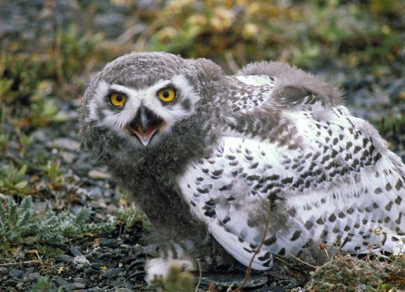
Kronotsky Nature Reserve - 1.1 million hectares
Kronotsky Nature Reserve, one of the oldest in Russia, is located in the east of the Kamchatka Peninsula. Here, the climate is formed under the influence of the Pacific Ocean, as well as the mountainous terrain. Summer is cool and humid, with thick fogs and frequent drizzling rain; in winter cold winds with snow are blowing; in spring avalanches come down from steep slopes in valleys of mountain rivers. High water permeability and looseness makes local soils very fertile.
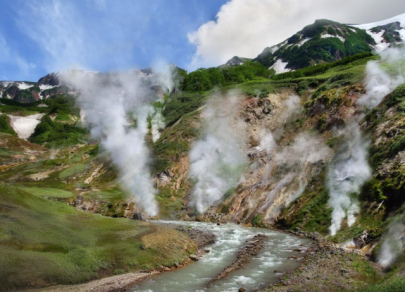
Kronotsky Nature Reserve - 1.1 million hectares
On the diversity of natural complexes, the Kronotsky Nature Reserve takes a special place among other nature conservation areas of the Far East. Its main attraction is the caldera of the Uzon volcano, which became the center of many cold and warm lakes, powerful griffins and geysers. Such an active volcanic activity attracts to Kamchatka a huge number of mammals and birds, a significant part of which is killed by poisoning with volcanic gases and unable to get out of the funnel.
